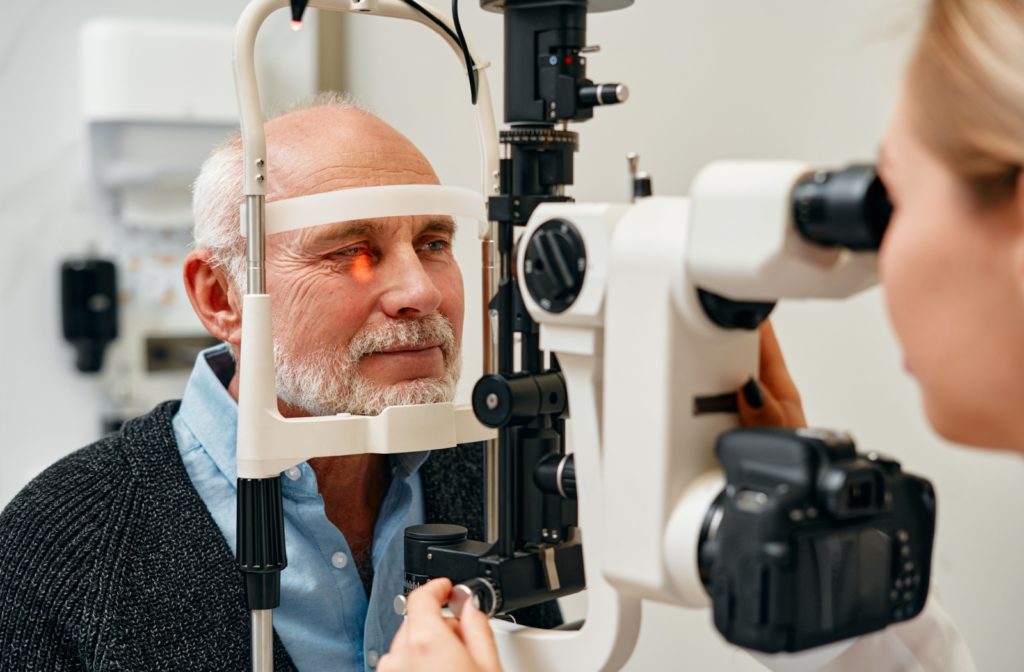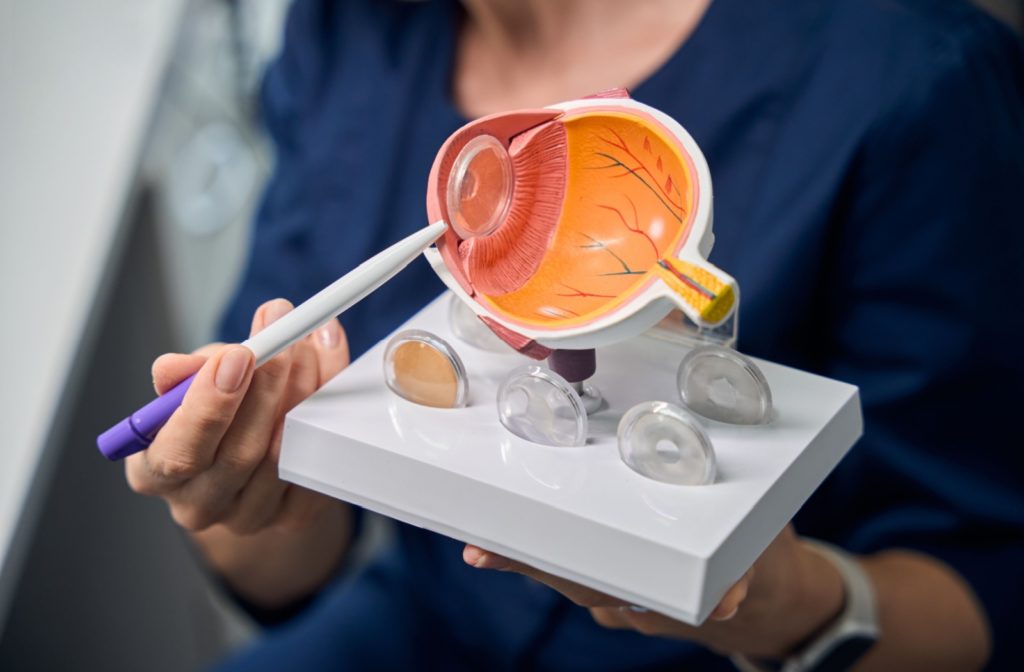Your vision is a core part of your everyday life. Yet, it’s easy to take healthy eyes for granted until something goes wrong. Retinal detachment, for instance, is a serious condition, and it can have a lasting impact on your life. Proactive steps are key to protecting and preserving your vision.
Retinal detachment can often be prevented. Protecting your eyes at all times, following a healthy lifestyle, and regular eye exams are essential steps. It also helps to know the signs of something wrong so you can seek immediate help when needed.
What Is the Retina?
The retina is a thin, delicate layer of tissue at the back of your eye. It converts light into readable signals for the brain. Think of it like a camera sensor for your brain—it creates images so you can see.
Without a healthy retina, seeing the world around you in sharp detail becomes much harder. This tissue is vulnerable to plenty of different eye conditions, each with unique effects and causes. The retina isn’t invincible, and if it’s damaged, it can’t process visual information properly.
One complicated condition stands out, however—retinal detachment.
Risk Factors for Retinal Detachment
Once the retina is damaged, permanent vision loss occurs. This is why retinal detachment is such a significant problem. It occurs when the tissue begins to pull away from the back of your eye. This process usually starts with small tears or holes in the retina, which can lead to a complete detachment if not treated promptly.
It’s important to note this condition is rare. Not everyone is at equal risk for retinal detachment. Some factors can increase your likelihood of developing this condition, such as:
- Aging, as retinal detachment becomes more common in individuals over 50.
- A family history of retinal detachment, which can increase genetic susceptibility.
- Previous eye injuries or trauma, which can weaken the retina.
- Certain medical conditions, such as extreme nearsightedness or diabetes.
- Prior eye surgeries, including cataract removal, which can impact the retina’s integrity.
When one or more of these are involved, the risk of retinal damage increases.
Early Warning Signs of Retinal Damage
Retinal detachment doesn’t cause pain. However, that doesn’t mean it’s unnoticeable. The moment the retina is damaged or begins detaching, it tends to cause unusual vision symptoms, including:
- Sudden appearance of floaters, like small specks or cobwebs drifting through your vision.
- Flashes of light in one or both eyes, even in the absence of an external light source.
- A shadow or curtain effect that begins to cover part of your vision.
- Blurred or distorted vision, making it difficult to see objects clearly.
- Reduced peripheral vision, giving the impression that your field of view is narrower.
- Difficulty seeing in dim light or noticing an overall darkening of vision.
If you experience any of these signs, don’t wait. Immediately reach out for emergency eye care. This could be the key to preserving your future vision and protecting your retina.
How to Protect Your Retina Daily
Caring for your retina doesn’t have to be complicated. A few small changes in your daily routine make it much easier to protect your eye health. To keep your eyes protected, make sure to:
- Wear sunglasses that block 100% of UVA and UVB rays to shield your eyes from harmful ultraviolet light.
- Maintain a healthy diet rich in fruits, vegetables, and omega-3 fatty acids to support eye health.
- Avoid smoking, as it can increase the risk of retinal damage and other eye diseases.
- Stay physically active to improve blood circulation, which benefits your eyes.
- Keep your blood sugar, blood pressure, and cholesterol levels under control to prevent complications that can harm your retina.
Don’t forget—preventing retinal detachment is a daily effort. These habits help protect your retina and significantly lower the risk of retinal detachment.

The Role of Regular Eye Exams
Even with the best habits, regular eye exams are key. They aren’t about just checking your vision and updating your prescription—they’re about looking for problems like retinal damage before they permanently damage your vision.
During your exam, your optometrist can dilate your pupils. This lets them thoroughly check your retina. Thorough examinations can catch problems early, and when necessary, start treatment sooner rather than later.
How Often to Schedule Eye Exams
Ideally, you should schedule eye exams roughly:
- Adults ages 18 to 64 should schedule an appointment every 2 years.
- Adults over the age of 65 should schedule an appointment once every year.
- Children should have their eyes examined at least once every year.
However, if you experience any significant changes, don’t wait. Consistency is key, but being careful can make all the difference in the world. The human eye is complicated, and your optometrist is an eye care professional.
Taking a Proactive Approach to Eye Care
Protecting your eyesight starts with understanding the risks and making healthier choices. By spotting early warning signs, protecting your eyes from harm, and prioritizing regular checkups, you can significantly lower the risk of retinal detachment.
Don’t wait until an issue begins—instead, schedule regular visits with our team here at Total Vision Sports Arena. We’re here to keep your eyes in excellent shape, and we know what to look for, so book your appointment with us today!



